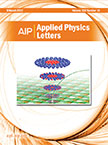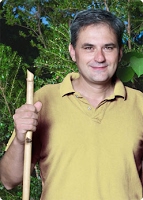
Jana Rieger is a researcher in Edmonton, Alberta. And now, she’s also a novelist. Her new book, “A Course in Deception,” draws on her experiences in science, and weaves a tale of how greed and pressures to publish can lead to even worse outcomes than the sort we write about at Retraction Watch. We interviewed Rieger about the novel.
Retraction Watch (RW): You tell the book from the point of a view of a fictional first-person narrator, a sleep researcher in Edmonton, Alberta, Canada. You, too, are a researcher in Edmonton. Is there any Jana Rieger in Mackenzie Smith? Continue reading “A Course In Deception:” Scientist’s novel takes on research misconduct

 Two journals have retracted two papers by the same group within months of each other, after editors were independently tipped off that they contained duplicated figures representing different experiments.
Two journals have retracted two papers by the same group within months of each other, after editors were independently tipped off that they contained duplicated figures representing different experiments. Recently, a reader contacted us with an interesting scenario: He’d recently heard about an author who asked for a refund of his page charges after he had to retract a paper for an honest error.
Recently, a reader contacted us with an interesting scenario: He’d recently heard about an author who asked for a refund of his page charges after he had to retract a paper for an honest error. In an unusual turn of events, a nutrition paper has come back to life a year after being pulled from its original publication.
In an unusual turn of events, a nutrition paper has come back to life a year after being pulled from its original publication. SCOPUS, the
SCOPUS, the 


